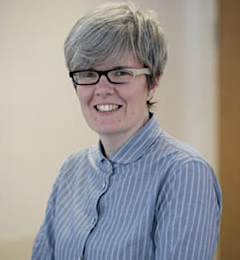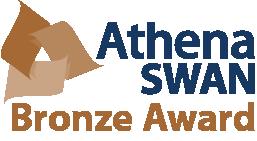Research interests
Now leading a collaborative programme of work with Health Sciences, Sandra is interested in the detection, understanding and control of biofilms on medical devices and within the clinical environment. With a main focus on urinary catheter contamination, she is working on several projects involved with improving anti-biofilm strategies.
Current and past research interests include:
- Understanding and preventing urinary catheter-associated biofilms.
- The impact of biofilms in nasogastric feeding tubes and implication for clinical practice.
- Biofilms in the environment, built environment and clinical practice.
- Development of novel molecular and microscopy-based methods for the detection of specific microbial pathogens in complex communities.
- Development of new viability models for the detection of sublethally damaged pathogens.
- Survival of sublethally damaged pathogens in drinking water systems e.g. E. coli O157, Legionella pneumophila, spore-forming species.
- Survival of sublethally damaged pathogens in human and animal wastes recycled to agricultural land, e.g. E. coli O157, Salmonella, Campylobacter, Listeria, Cryptosporidium.
PhD Supervision
Michelle Baker-Moffatt: Examining biofilm development within fine-bore nasogastric tubes used by adults and exploring the nursing perspective of tube management. Health Sciences Clinical Academic Programme.
N. Malissa Rahimi: The role of biofilms in the contamination of urinary catheters. Commonwealth Fund.
Christopher Winnard: Clinical and laboratory approaches to investigating the development of biofilms in neonatal nasogastric tubes: Implications for morbidity and mortality. Institute for Life Sciences/ Biological Sciences/Health Sciences.
Fergus Watson: The prevalence and relevance of hospital biofilms and their inactivation by hydrogen peroxide vapour technology. The Royal Commission for the Exhibition of 1851
Research Group
Bladder and Bowel
Research theme
Fundamental Care
Research project(s)
SecurEau – Security and decontamination of drinking water distribution systems following a deliberate contamination event.
This work aims to design novel methodologies for the detection of low levels of contaminants, model the distribution of contaminants throughout a network and identify the point of origin, develop the use of sensors for surveillance and provide decontamination protocols for polluted networks and installations, including the neutralisation of contaminated water and residues.
Prevention and minimisation of biofilms on urinary catheters and equipment
Biofilm development on urinary catheters is a major healthcare issue, leading to infection and blockage. Here we are using advanced microscopy and viability techniques to improve our understanding of biofilm development and persistence on urinary catheters.
Development of novel methods to assess the viability and infectivity of pathogens in biofilms found in drinking water supply systems.
Using novel methods, the infectivity of sub-lethally stressed bacterial pathogens such as those in drinking water biofilms is being assessed and monitored.
This is a randomised controlled trial in which participants must be willing to use one of two intermittent catheterisation strategies which will be randomly allocated by computer.
Dr Sandra A WilksSchool of Biological Sciences
Faculty of Environmental and Life Sciences
Life Sciences Building 85
University of Southampton
Highfield Campus
Southampton
SO17 1BJ
Room Number : 85/4041
Dr Sandra A Wilks's
personal home page 
